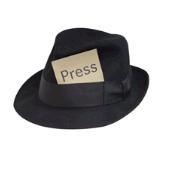
Sizing
Up The Ongoing LCB Issues
Money
is at the heart of the debate over the future of the Liquor Control Board for
Worcester County (LCB), and that’s how it should be. This is not a complicated
issue, but there are a lot of interesting aspects to it and how much in funds
the organization returns to the county is at the heart of the matter. Here’s a
few viewpoints on the ongoing debate:
— The
fiscal numbers are fascinating. With more than $14 million in sales, the local
LCB’s profit for its last fiscal year came to just $110,000 this year. Since
it’s a non-profit operation, 50 percent of profits are returned to the county
and the other half divvied among the municipalities. This year’s paltry amount
is raising eyebrows, particularly when compared to the $777,000 in revenue
reported just two years ago.
Another
reason to be concerned over the low net profit this year is when compared to
Wicomico and Somerset counties. Wicomico has about half the sales and recorded
more than $400,000 in profit, while Somerset recorded over $1 million in sales
and registered about $71,000 in profit.
— If
they have not already, the seven candidates running for the local House of
Delegates seat and the four for the lower shore Senate spot will have to weigh
in on the issue of whether they would, if elected, submit a bill calling for
the abolishment of the LCB.
Word is
the local municipal Mayor and Councils and the County Commissioners will sooner
or later hold a vote on writing a letter to the legislature asking for the
monopoly to be either disbanded or kept intact. If a bill to dissolve the LCB
gets introduced in Annapolis and local governments each pen correspondence
supporting it, it will likely get passed. The key will be having legislators in
place willing to introduce it and then ensure it gets passed.
— When
it offered three different businesses a Stoli vodka promotion at three varying
prices last spring, LCB violated Article 2B, a section of the Maryland code
governing the state’s booze industry. That much is clear and the invoices prove
it. The LCB last week admitted the different pricing was a mistake.
With
that said, the question is: what’s going to be the punishment? What’s the
consequence of this mistake and unfair act? Will it be a slap on the wrist or
more severe? It certainly should be held accountable for this gross error,
particularly when it was revealed this week a similar situation took place
involving wine.
There
are many other questions surrounding this ongoing controversy. Chief among them
from a general sense is: What happened to all the profits the LCB used to make?
Is it a result of the economy’s downturn solely? That’s not plausible when
sales were largely unaffected. Something else is awry here. Were serious
operational and management decisions to blame? Surely there’s plenty of
culpability on that front. Is there any funny business going on with the money?
The ongoing state comptroller’s office investigation will go a long way toward
answering that question as well as the others.

